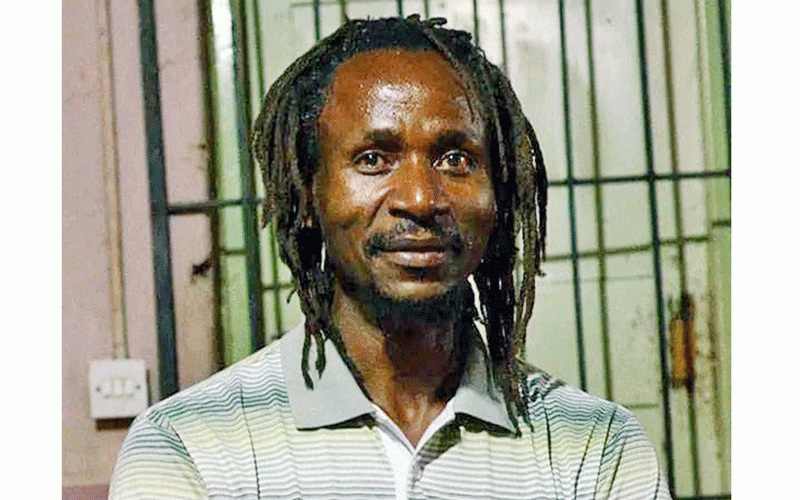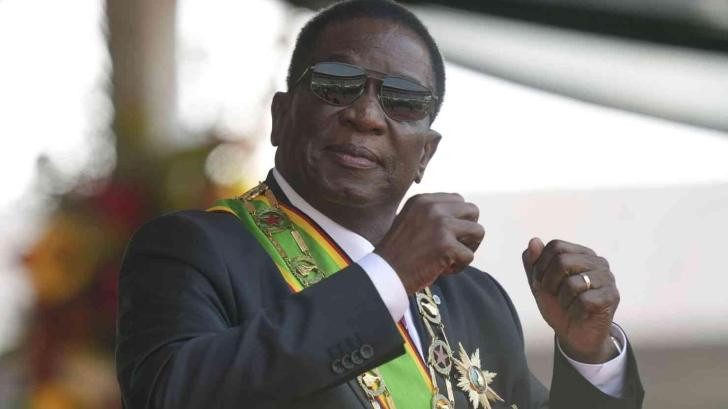
A lot of people knew recently deceased photographer Calvin Dondo, some knew him better than others. It is perhaps the mark of his overreaching influence that many who did not sit and sup with him frequently, speak of him with gratitude and fondness. The international outpouring of grief has made it clear that many stories will remain untold, from South Africa to Ghana, and across the continent to Mali.
Colleague, partner in photography, and co-founder of Gwanza Month of Photography, Tsvangirayi Mukwazhi is probably best placed to eulogise Dondo. He shared, “Calvin trained at the Harare Polytechnic under Margaret Waller from 1985–1988. After completing his studies, he worked at the Harare Passport Office taking official passport photos for more than two years, before leaving to pursue freelance photography. He went on to specialise in artistic and daily life images, always with a quiet determination that set him apart.” Gwanza Month of Photography, hosted exhibitions, organised workshops, and invited international photographers. Working alongside Dondo, Mukwazhi felt illuminated by his colleagues’ practice. “Calvin introduced me to images with a soul… I never knew photographs could carry such depth.”he says. Responding to another admirer of his work Dondo once remarked, “Thank you mukoma, at times you walk into these pictures and your job is to point and shoot.”
Unanimously perceived as an affable character Dondo was described by former Executive Director of the National Gallery of Zimbabwe, Doreen Sibanda as a “soft spoken, deep thinker and always ready to assist.” Emeka Kupeski Okereke calls him, “A wonderful soul.’’ Aaron Ufumeli affirms, “I had great respect for him.” Canada based visual artist David Chinyama says, “He was indeed an inspiration to later generations not of just photographers, but visual artists and other creatives who had the privilege of crossing paths with him.”
First Floor Gallery Harare put out a beautiful obituary that included a long list of the departed photographers’ achievements noting that, “Dondo represented Zimbabwe at its first National Pavilion at the 54th Venice Biennale and has exhibited at the Havana Biennale, Havana; Paris Photo, Paris; and multiple times at Bamako Encounters — African Biennale of Photography. He has also exhibited work at the Museum of Contemporary Art, Detroit; Yokohama Museum of Modern Art,Yokohama; Manchester City Art Gallery, Manchester; Salzburg Modern Art Museum, Salzburg; and the Centre for Contemporary Art, Barcelona. He has won numerous awards, including the Grand Prize at Bamako Encounters (2007) and the Konrad Adenauer Special Press Prize. His passion for storytelling through images earned Dondo wide international acclaim. His final solo exhibition Tales of Resilience dedicated to the story of the Tonga people displacement by the construction of the Kariba Dam was held at First Floor Gallery Harare in May 2024. His loss is deeply felt by the artist community of Harare.”
Although Dondo paved the way for many, he still faced resentment from others. To truly honor his legacy, Dondo’s death must not be used to sanitise his reputation by erasing the pain he may have caused others. He was a fallible man with his own shortcomings, and likely made mistakes that were clear to his peers and could be weaponised against him. With a sense of resignation, he would later express regret that some photographers who were inspired by and may have cut their teeth through Gwanza Month of Photography, chose to distort history by erasing the role it played in their careers due to a personal vendetta.
One of those unfortunate episodes was a fallout after one particular Gwanza Month of Photography exhibition. Unkind words may have been exchanged. “Hanzi muri ma amateur” he said with a chuckle that simultaneously shook his shoulders. He wasn’t too bothered by the insult over his apprentices. Looking down from his lanky frame with his head slightly leaning to one side, he had a bemused smile, and a twinkle in the eye as if he’d just had a goblet of wine. At exhibition openings he would defer to the wine but never go near the hard stuff. The imperious prognosis did not undermine his integrity, however. The man who was revered as an icon in Mali since 2007, and South Africa where some of the best photographers on the continent have been made — always responded with patience, humility, and respect. In principle he might have agreed with the sentiment, but the difference was that he had faith, and valued potential in others.
But just because Dondo believed in people does not mean he gave out easy pass grades. Shepherd Cha’abata, tells a light-hearted story that demonstrates tough love from Dondo. About the time he gave Dondo a compact disc with photographs in order to get his opinion, and was told (probably with a half smile that lit up his eyes) that there were no photographs on the device.
In his youthful naivete Cha’abata assumed that the discs had got damaged, only to discover later that his mentorship had begun in real-time by having the meaning of a photograph re-defined. It all ends well as he narrates, “But over the years he would hold my hand where photography was concerned and taught me how to see and frame a photograph before you even picked up a camera.”
- Open letter to President Mnangagwa
- Feature: ‘It’s worse right now than under Mugabe’: Sikhala pays the price of opposition in solitary cell
- Masvingo turns down fire tender deal
- Human-wildlife conflict drive African wild dogs to extinction
Keep Reading
The photography community in Harare has become like an insular cult, where practitioners hold their cards close to the chest, hoard opportunities, and protect their interests from competition. They scope each other out through their long lenses and smile when they rub shoulders at big events, but the real camaraderie does not go beyond a few closed alliances.
Dondos’ demise has united everyone in mourning and celebrating the man not only for his personal accomplishments, but his generosity in providing opportunity for others.
One of Dondos’ proteges, Germany based Nancy Mteki says, “You were there from the very start of my photography journey. You believed in me before I even believed in myself. You never once turned me away or made me feel like a burden. You welcomed me, always — offering advice, encouragement, and protection.”
Another of his mentees Annie Mpalume emotionally penned, “It’s hard to find the words to say goodbye, especially when I wish I had been there to say it in person. The world has lost a truly great artist, but I have lost so much more. You didn’t just teach me how to use a camera; you showed me how to see the world through a different lens.”
The Executive Director of the National Gallery of Zimbabwe, Raphael Chikukwa knew Dondo professionally for a very long time. As inaugural curator of the Zimbabwe Pavilion at the 54th Venice Biennale, he shared the significant milestone with Dondo, together with Tapfuma Gutsa, Berry Bickle, and Misheck Masamvu who represented the country. “Zimbabwe has lost a giant in the arts, but his work will be with us forever.” he said. The statement aptly sums up the grief, gratitude, and hope from Dondos’ many friends, associates, and acquaintances.
Born in 1963, Dondo studied photography at Harare Polytechnic from 1985 — 1988 going on to work as a freelance photographer published in various local and international publications.
Dondo represented Zimbabwe at its first National Pavilion at the 54th Venice Biennale and has exhibited at the Havana Biennale, Havana; Paris Photo, Paris; and multiple times at Bamako Encounters – African Biennale of Photography. He has also exhibited work at the Museum of Contemporary Art, Detroit; Yokohama Museum of Modern Art, Yokohama; Manchester City Art Gallery, Manchester; Salzburg Modern Art Museum, Salzburg; and the Centre for Contemporary Art, Barcelona.
He has won numerous awards, including the Grand Prize at Bamako Encounters (2007) and the Konrad Adenauer Special Press Prize. His passion for storytelling through images earned Dondo wide international acclaim. His final solo exhibition Tales of Resilience dedicated to the story of the Tonga people displacement by the construction of the Kariba Dam was held at First Floor Gallery Harare in May 2024.











